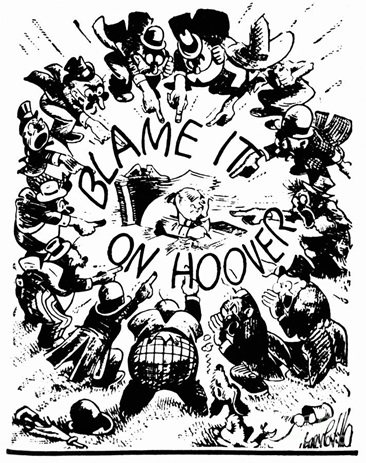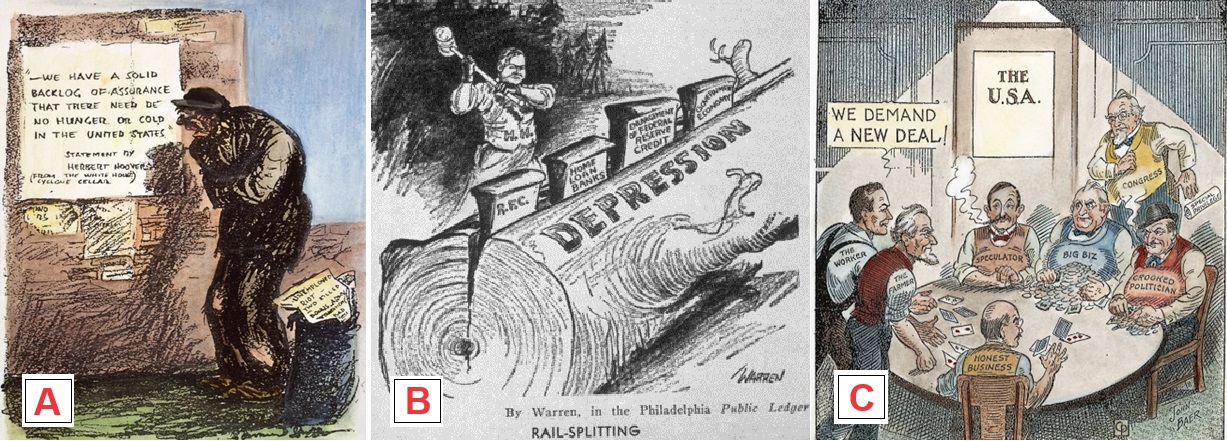|
|
|
How Useless was Hoover?
I get annoyed with pupils who call people in History ‘stupid’ or ‘useless’. Herbert Hoover was an orphan who became a mining engineer and multi-millionaire. After WWI he ran the aid programme that saved Belgians from starvation. Going into politics, he won the 1928 presidential election with a landslide, proclaiming ‘triumph over poverty’ and promising Americans ‘a chicken in every pot and a car in every backyard'. It is undeniable that Hoover failed to end the Depression. It is also undeniable that Americans blamed Hoover for failing to end the Depression – for instance they called the shanty towns of homeless people 'Hoovervilles', and talked of ‘Hoover leather’ (cardboard soles for shoes), ‘Hoover blankets’ (newspapers that people slept in) and 'Hoover flags' (empty pockets). But were the accusations fair? Did Hoover fail to address the depression?
|
Going DeeperThe following links will help you widen your knowledge: Basic accounts from BBC Bitesize
YouTube
AQA-suggested Interpretation of the Great Depression and 1932 Election: Herbert Hoover, Memoirs of Herbert Hoover: The Great Depression
|
YES HE DID FAIL
|
NO HE DID MUCH TO ADDRESS IT
All this is usually either not mentioned at all, or dismissed as ‘too little, too late’. In fact, it was exactly what the ‘New Deal’ was later to copy.
|
Why did Hoover lose the 1932 Presidential Election?
In the 1932 Presidential election Hoover (of the Republican Party) faced the Democratic candidate Franklin D Roosevelt. In a landslide defeat, Hoover won only 6 of the 48 states of the USA – the worst defeat ever in a Presidential election.
|
|
HOOVER'S CAMPAIGN
|
ROOSEVELT'S CAMPAIGN
|
|
Political cartoons from the 1932 election.
|
|

